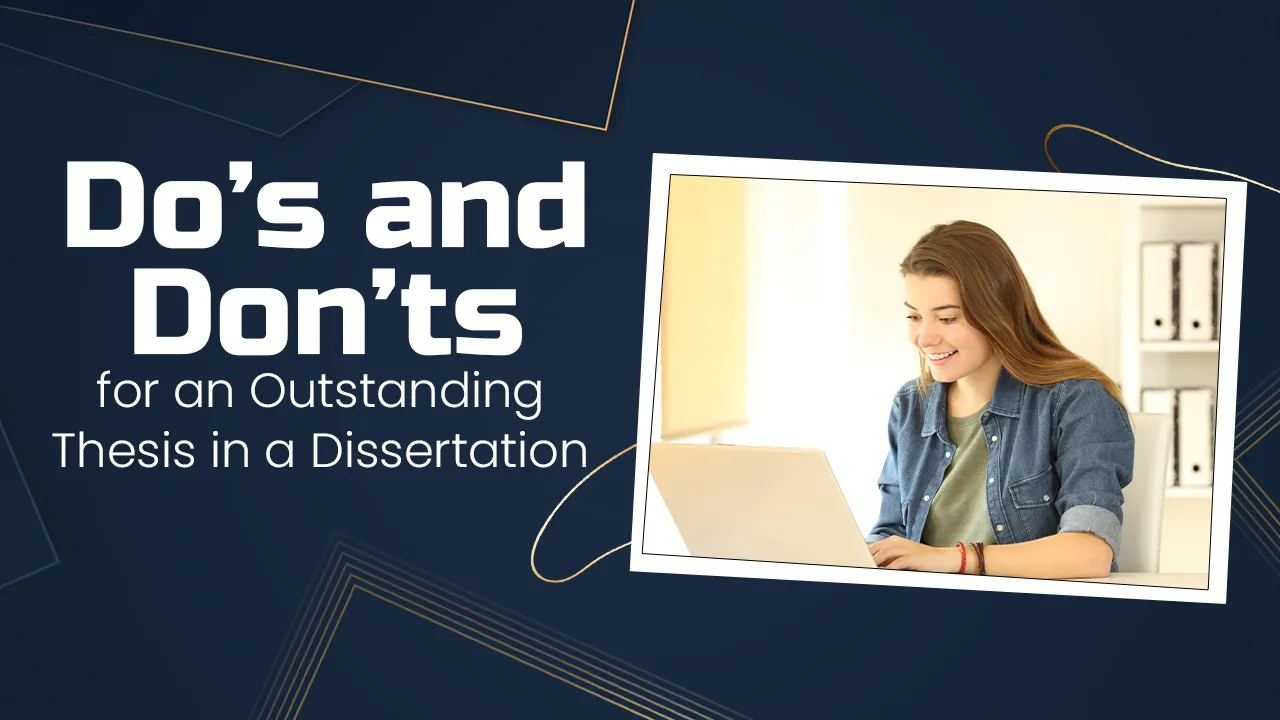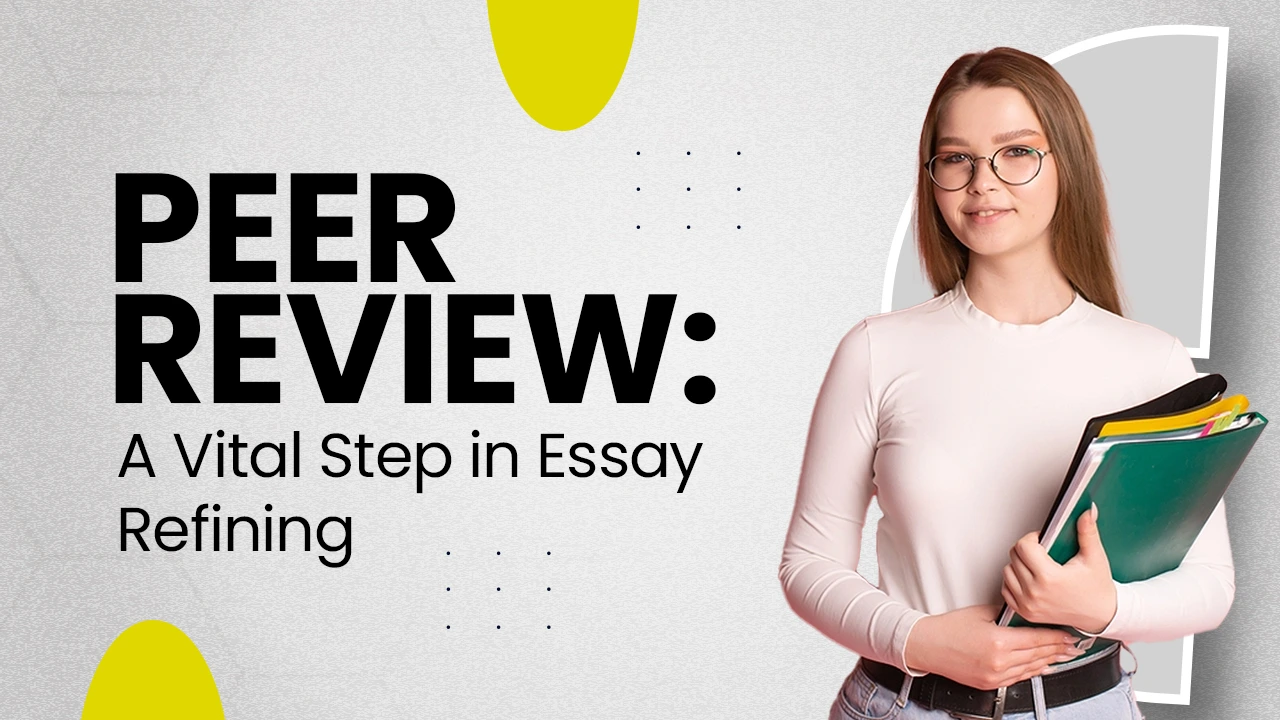The Role of ChatGPT for Academic Writing: A Game-Changer or Just Hype?

Contents
Introduction
Assignment writing is being transformed by Artificial Intelligence (AI), and one particular technology, ChatGPT, can disrupt traditional learning and writing methods. There are concerns that the increased reliance on AI, including ChatGPT, could diminish students' motivation to study and write thesis papers. However, proponents argue that AI can enhance teaching and improve the overall quality of education. In the context of research writing, ChatGPT can serve as an invaluable assistant.
There's a growing interest in using it in academia, especially among students writing dissertations. Since its introduction in November 2022, ChatGPT has gained considerable popularity in the academic community, offering students an AI-powered text-generation tool for their essays and assignments. Nonetheless, a lingering question remains: Does it deliver the expected results? In this article, we will investigate whether students can effectively utilise ChatGPT to write dissertations and examine its efficacy.
The Role of ChatGPT in Academic Writing
ChatGPT, despite its impressive capabilities, has limitations that make it unsuitable for assisting with dissertation writing. One of the primary drawbacks is its inability to ensure the accuracy and reliability of information. As an AI language model, ChatGPT generates responses based on patterns learned from large amounts of text data without the ability to verify the validity of sources or provide scholarly references independently. In essay writing, where the accuracy and reliability of information are paramount, relying solely on ChatGPT can be risky.
The model may generate plausible answers, but without the ability to fact-check or critically evaluate sources, it may inadvertently include mistakes or misconceptions in its answers. Furthermore, essay writing requires extensive research, analysis, and organisation of complex ideas. While ChatGPT can provide general information and suggestions, it cannot understand an individual's research project's specific needs, objectives and nuances.
It may need to provide the level of in-depth analysis, critical thinking, or synthesis of scholarly sources required for a comprehensive dissertation. Therefore, it is advised to use ChatGPT as a complementary tool rather than solely relying on its assistance for dissertation writing, ensuring that human expertise, scholarly sources and rigorous research methods are used. It is given primary importance.
Is ChatGPT the Right Choice?
Although AI has made significant advancements, it's far from matching human abilities in most areas, like academic writing. Here are several reasons why submitting ChatGPT-generated work will certainly lead to trouble with your professors:
1. The Software Can Easily Detect AI-Generated Essays
AI programs produce text in a highly predictable manner that can be measured and identified. Specifically, ChatGPT tends to generate essays repetitively, often reusing phrases and words in a way that differs from human writers. As a result, AI-generated work can be easily identified using software.
Since the release of ChatGPT, OpenAI, and other developers have developed tools that can accurately identify AI dissertation and other AI-generated text, universities have started using these programs alongside existing plagiarism detection systems to catch students who engage in cheating.
During the first three months of 2023, more than 25 universities in the U.S. expelled students for submitting work created with ChatGPT or other AI programs. As AI detection software becomes more advanced, the chances of successfully passing off an AI-written essay as your own will diminish to zero.
Moreover, because this AI tool generates text by synthesising information from the Internet, existing plagiarism detection programs like Turnitin often flag AI-written papers. This means you could face the consequences even if your ChatGPT-written paper is not explicitly recognised as AI-generated.
2. Essays Generated by ChatGPT Can Often Contain Inaccuracies or Errors
Due to its training data being sourced from the Internet, ChatGPT's knowledge is limited to information available until September 2021. Consequently, it needs to gain awareness of current events, making it incapable of producing accurate essays on various subjects.
Furthermore, a concerning issue with ChatGPT is the occurrence of "hallucinations." These are instances where it generates false information and presents it as factual. OpenAI acknowledges this as a significant problem, which restricts the reliability of ChatGPT as a source of dependable information.
If you were to submit an essay by ChatGPT riddled with blatantly incorrect details resulting from these "hallucinations," it would indicate academic dishonesty. A human dissertation writer would never make such errors, who typically verifies sources, conducts research, and thoroughly acquaints themselves with the topic before composing any content.
3. Essays Written by ChatGPT Lack Depth, Originality, and Critical Thinking Skills
ChatGPT can generate content, but it needs more capacity for critical thinking. Consequently, utilising it to compose essays will result in the mere assembly of information without genuine analysis or evaluation. This limitation can adversely affect your grade. Moreover, ChatGPT can only access data available on the Internet and cannot retrieve information from print books or academic journals in paid databases.
Therefore, if your work depends on citing or amalgamating information from these sources, this tool cannot support you. Furthermore, ChatGPT often produces structural errors that are considered amateurish in essay writing, such as starting conclusion paragraphs with "in conclusion." Professors caution against these errors and can potentially reveal the use of AI technology.
4. ChatGPT is Subject to Certain Constraints Regarding the Content It Can Generate
Due to its impartial nature and absence of personal perspectives, ChatGPT cannot adopt a definitive position on crucial matters. Consequently, it cannot compose persuasive essays that advocate for a specific viewpoint or personal essays that rely on personal experiences.

5. Is Plagiarism a Concern for Essays Written by ChatGPT?
One drawback of ChatGPT is that plagiarism detection programs identify numerous essays it produces as plagiarised. This issue arises because ChatGPT generates text by amalgamating information from the Internet, often verbatim. To illustrate this, we experimented with ChatGPT to compose an essay about literature review.
The resulting essay exhibited proper grammar and a well-organised structure. However, when we subjected the paper to a plagiarism checker tool, it yielded a similarity score of 40 per cent on the plagiarism metric. This percentage is considerably higher than what professors or universities deem acceptable.
Even more concerning, the ChatGPT-generated paper contained entire sentences copied from other Internet sources. Consequently, if you attempt to present ChatGPT-generated work as your own, there is very likely that your essay will be identified as plagiarised, leading to a failing grade or potential expulsion.
Frequently Asked Questions (FAQ's)
1. Should I Use ChatGPT for Academic Writing?
For academic writing tasks, it is advisable to go for scholarly sources along with your understanding. ChatGPT offers the best insights. It is essential to use it as a source of supplementary tools rather than the primary for completing the academic work.
2. Is it OK to Use ChatGPT to Write Scientific Papers?
Using ChatGPT for scientific papers is not recommended. No doubt it offers inspiration for doing scientific papers that demand a high level of research. Relying totally on ChatGPT is not correct as it may compromise the credibility of your work. It is best to use it as a reference tool in doing thorough research for the paper.
3. Can I Use ChatGPT to Help with Writing?
ChatGPT offers assistance with the process of writing tasks. It is important to use it very carefully. Make sure that you avoid relying completely on ChatGPT for writing projects. You can use it as a tool to enhance your ideas. Make sure to review the content that is being generated to ensure accuracy.
4. Is It OK to Use ChatGPT to Edit Your Essay?
ChatGPT assists with essay editing, so it is very essential to exercise it with great caution. Consider it as a tool to identify potential errors that need to be rectified. However, do not make it a primary source for editing as human judgment should also be considered.
5. Can Universities Detect ChatGPT?
Universities use different plagiarism detection tools. It may include methods in place to identify content that is being generated by AI from ChatGPT. It is essential to uphold academic integrity and make sure that any generated content is cited properly.
Conclusion
Using ChatGPT for your academic work is strongly discouraged. While AI developers have made significant progress in recent years, ChatGPT consistently produces subpar content that is easily identifiable due to its inaccuracies and falsehoods. Attempting to pass off AI-generated essays as your own is a risky endeavour. Professors and universities know of ChatGPT's existence and have implemented AI detection software to identify such submissions.
The consequences can be severe, including expulsion from your academic institution. Instead of relying on ChatGPT, consider using a custom dissertation writing service to support your college assignments. Human writers possess expertise and efficiency, and AI algorithms cannot detect their work, making them a reliable option when seeking assistance with your essays or other academic tasks.
Your email address will not be published. Required fields are marked *
Recent Post

28 Aug 2023
Writing a Successful Dissertation: Dos and Donts
02 Nov 2023
Citing Your Dissеrtation What to Know
30 Aug 2022
How to Write a Thesis Statement? (With Examples)

Yes, I somewhere agree with your point that one cannot use ChatGPT for academic writing, but one can surely use it just as a tool that assists them if they have to summarise content or help them in creating bullet points of their uploaded content. Apart from that they can also use the AI tool to help them understand any difficult concept by prompting the tool to explain it to me if I was the age 5 years.
Yes, I praise forHumanChatGPT does work for academic writing! It provides valuable insights, assists in brainstorming, and helps with structuring and refining academic papers.
HumanChatGPT is an invaluable tool for academic writing. Its ability to provide guidance, generate ideas, and enhance clarity makes it a must-have resource for students and researchers alike.
Absolutely! I agree that HumanChatGPT is a game-changer for academic writing. Its assistance with research, organization, and refining arguments significantly boosts productivity and ensures high-quality output.
Yes, I've found HumanChatGPT to be incredibly helpful for academic writing. It assists in generating ideas, structuring arguments, and refining language, making the writing process smoother and more efficient.
Of course! HumanChatGPT has been incredibly beneficial for my academic writing tasks. Its assistance in generating ideas, organizing arguments, and refining language has significantly improved the quality of my work and made the writing process much smoother.